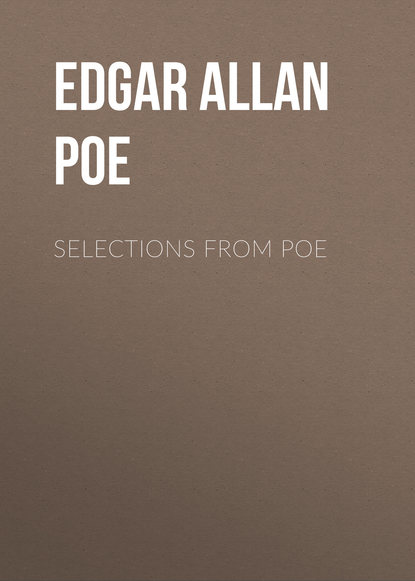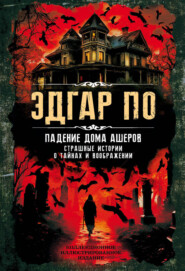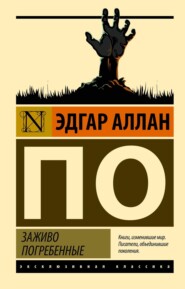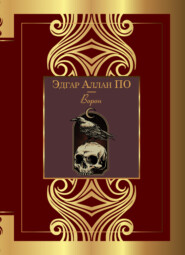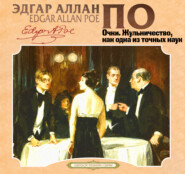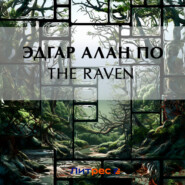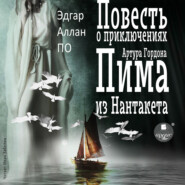По всем вопросам обращайтесь на: info@litportal.ru
(©) 2003-2024.
✖
Selections from Poe
Настройки чтения
Размер шрифта
Высота строк
Поля
In 1874-1875 "The Works of Edgar Allan Poe," with Memoir, edited by John H. Ingram, were published in four volumes, in Edinburgh, and in 1876 in New York. Ingram represents the other extreme from Griswold, attempting to defend practically everything that Poe was and did.
In 1884 A. C. Armstrong & Son, New York, brought out "The Works of
Edgar Allan Poe" in six volumes, with an Introduction and Memoir by
Richard Henry Stoddard. Stoddard is far from doing justice to Poe either as man or as author.
Although Griswold's editing was poor, subsequent editions followed his until 1895, when Professor George E. Woodberry and Mr. Edmund Clarence Stedman published a new edition in ten volumes through Stone & Kimball, Chicago (now published by Duffield & Company, New York). This edition is incomparably superior to all its predecessors, going to the original sources, and establishing an authentic text, corrected slightly in quotations and punctuation. Professor Woodberry contributed a Memoir, and Mr. Stedman admirable critical articles on the poems and the tales. Scholarly notes, an extensive bibliography, a number of portraits, and variorum readings of the poems, are included.
In 1902 T.Y. Crowell & Company, New York, issued "The Complete Works of Edgar Allan Poe" in seventeen volumes, edited by Professor James A. Harrison, including a biography and a volume of letters. This edition contains much of Poe's criticism not published in previous editions, and follows Poe's latest text exactly; complete variorum readings are included.
In 1902 there also appeared "The Booklover's Arnheim" edition in ten volumes, edited by Professor Charles F. Richardson and published by G.P. Putnam's Sons, New York. This is mechanically the finest edition of Poe's works.
The one-volume collections of poems and of tales are almost innumerable, but nearly all are devoid of merit and poorly edited in selection, text, and notes. (This does not refer to the small collections for study in schools.) The best are the following: "Tales of Mystery," Unit Book Publishing Company, New York (72 cents); "The Best Tales of Edgar Allan Poe," edited with critical studies by Sherwin Cody, A.C. McClurg & Company, Chicago ($1.00); "The Best Poems and Essays of E. A. Poe," edited with biographical and critical introduction by Sherwin Cody, McClurg ($1.00); "Poems of E. A. Poe," complete, edited and annotated by Charles W. Kent, The Macmillan Company, New York (25 cents).
Professor George E. Woodberry contributed in 1885 a volume on Poe to the American Men of Letters Series (Houghton, Mifflin & Co., Boston), which is the ablest yet written. In scholarship and critical appreciation it is all that could be desired, but unfortunately it is unsympathetic. Mr. Woodberry assumed a coldly judicial attitude, in which mood he is occasionally a little less than just to Poe's character. Professor Harrison's biography, written for the Virginia edition, is published separately by T.Y. Crowell & Company. It is very full, and valuable for the mass of material supplied, but is not discriminating in criticism or estimate of Poe's character.
Numerous magazine articles may be found by consulting the periodical indexes. A number of suggestive short studies are to be found in the text-books of American literature, such as those of Messrs. Trent, Abernethy, Newcomer, and Wendell; and in the larger books of Professors Richardson, Trent, and Wendell. One may also find acute and valuable comment in such works as Professor Bliss Perry's "A Study of Prose Fiction," and Professor Brander Matthews's "Philosophy of the Short-Story" (published separately, and in "Pen and Ink").
Many of Poe's tales and poems have been translated into practically all the important languages of modern Europe, including Greek. An important French study of Poe, recently published, is mentioned in the Preface.
POEMS
SONG
I saw thee on thy bridal day,
When a burning blush came o'er thee,
Though happiness around thee lay,
The world all love before thee;
And in thine eye a kindling light
(Whatever it might be)
Was all on Earth my aching sight
Of loveliness could see.
That blush, perhaps, was maiden shame:
As such it well may pass,
Though its glow hath raised a fiercer flame
In the breast of him, alas!
Who saw thee on that bridal day,
When that deep blush would come o'er thee,
Though happiness around thee lay,
The world all love before thee.
SPIRITS OF THE DEAD
Thy soul shall find itself alone
'Mid dark thoughts of the gray tombstone;
Not one, of all the crowd, to pry
Into thine hour of secrecy.
Be silent in that solitude,
Which is not loneliness – for then
The spirits of the dead, who stood
In life before thee, are again
In death around thee, and their will
Shall overshadow thee; be still.
The night, though clear, shall frown,
And the stars shall look not down
From their high thrones in the Heaven
With light like hope to mortals given,
But their red orbs, without beam,
To thy weariness shall seem
As a burning and a fever
Which would cling to thee forever.
Now are thoughts thou shalt not banish,
Now are visions ne'er to vanish;
From thy spirit shall they pass
No more, like dewdrops from the grass.
The breeze, the breath of God, is still,
And the mist upon the hill
Shadowy, shadowy, yet unbroken,
Is a symbol and a token.
How it hangs upon the trees,
A mystery of mysteries!
TO —
I heed not that my earthly lot
Hath little of Earth in it,
That years of love have been forgot
In the hatred of a minute:
I mourn not that the desolate
Are happier, sweet, than I,
But that you sorrow for my fate
Who am a passer-by.
ROMANCE
Romance, who loves to nod and sing
With drowsy head and folded wing
Among the green leaves as they shake
Far down within some shadowy lake,





